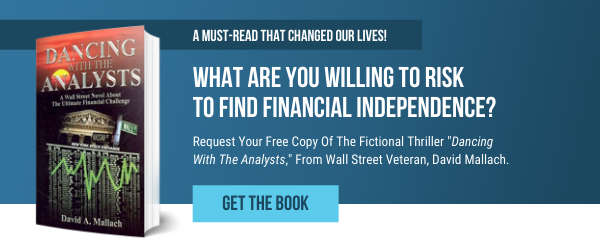Everyone always wants to talk about fees. How much are they? Are they too high, too low, or just right? What do they cover? Why do we charge what we charge? How are our fees different from the competition? Are we worth it? Every question you can imagine on the topic of fees.
The question that really intrigues me is the “are you worth it?” or, said another way, “what is the value you provide?” This question gets me energized, perhaps a little annoyed, but mostly mobilized and excited about who we are, what we do and how we do it.
For the basis of this conversation, could we agree that a large portion of investment outcome is contingent on investment behavior? I don’t know what percentage it constitutes, but I do know that investor behavior has a huge impact on the outcome. So, when someone asks, “What’s the value you provide?” the first thing that comes to my mind is to ask, “What is your financial future worth to you?” If investment outcome hinges on investor behavior, then I would argue that directing the investor’s behavior in a productive direction is where the value lies.
I propose that where we earn our fees is in helping clients manage their very human responses to loss. Let’s examine seven common behaviors of investors, and what drives them to make those choices. This is not an exhaustive list, it’s simply to point out some of the things that people do and why they do those things.
7 Common Behaviors of Investors
1. Investing in Bonds
This is a topic we have discussed at great length before, so we’ll keep it brief here. People buy bonds because they assume that they are making a safe choice, believing that bonds will provide a steady income stream in the future. People assume that bonds will protect their portfolios from volatility. The irony is that over the long-term bonds introduce more risk than they remedy. Why would you invest in an asset that returns a fixed income, where every expense you have is increasing over time? We believe that any allocation to bonds is not rational and driven by fear.
2. Investing in Variable Annuities
Variable annuities are not a rational choice as they are bought out of fear. People assume that because variable annuities provide an income stream they will be a “safe” choice. When the equity markets chug along at an average of 10% annual rate of return historically, on what planet would it make sense to invest in something like a bond or a variable annuity that over that same time period time averages a 4% return?
3. Investing in Index Funds
In the investment world, it's been shown historically that a number of indices beat a majority of the fund managers out there. Industry greats like Jack Bogle built vast companies like Vanguard based on this notion. But if you’re arguing that “you should just put your money in the S&P 500 index and you’ll be able to outperform a certain financial advisor or portfolio manager,” you’re not telling the whole story. It hinges on one huge assumption, namely that Joe Smith or Jane Doe, individual investor, actually plunked their money into the S&P 500 and didn’t do anything after that for thirty years. Meaning they held their positions. You know, as well as I do, how unlikely a scenario this is.
4. Using Robo Advisors
Next up: robo advisors, low-cost, or no-cost trading. These follow the same pattern as index funds when it comes to investor behavior. Oh, let’s just call this entire category “When clients are left to their own devices.” It has never been easier than today for people to take control of their own investment portfolios, using a wide range of easy-to-use platforms. The average duration of a bear market is about 14 months. Were I to speak to a person who has boldly chosen to walk the robo path, I would ask, “Are you going to be able to stay invested for 14 long months when all you can read and see and hear on the 24-hour news cycle is the end of humanity (economically speaking, that is)?” Every news outlet under the sun makes money from mindshare. Their job is the delivery of the news, not its impact on you. “How will it feel to have to stomach this news daily for 14 months?” I’ll leave you to ponder that.
5. Cashing Out Because “This Time It’s Different.”
While we are on the topic of recessionary conditions, scenarios I may call “normal corrections,” let’s also consider what I call, “This Time It’s Different” events. You know the ones: when people say, “Oh, surely, this time it’s not a normal recession.” That includes events like 9/11, the Great Recession of 2008, the “flash crashes” of 08-09, and Black Monday (1987), all deemed the end of the market as we know it, and from which we recovered. Not to mention the pandemic of 2020. The assumption with any of the components of “clients left to their own devices” category is that people will be able to make it through such market events without jumping ship. Almost always wrong.
6. Forgetting that Every Bear Market is Temporary.
Every bear market is temporary. What’s the value of keeping people invested through the bear markets? Remembering back to the spring of 2020, I’m standing at my desk telling folks, “Don’t get out of the market, simply do not.” “I don’t know how much it’s going to fall, and for how long, but I do know that historically, on average, these things last around 14 months.” And wouldn't you know it, this one hit “bottom” about three weeks after it started. How much was that advice worth for those who stayed in, and how much did it cost those who didn’t listen? Again, every bear market is temporary.
7. Getting More Fearful As Retirement Approaches
Another behavior we observe in investors is that as people get older and closer to retirement, they get even more emotional about their portfolios. As their money grows, so does their anxiety about losing it. It was one thing when they started out many years ago and grew their portfolio from 50 to 100K. Then from 100 to 500K, and maybe over time to two and a half million. Now they’re looking at leaving their primary employment and the portfolio is going to have to replace their income stream. That income stream is tied to the ups and downs of the market. This scenario is rife with emotion. Consequently, it’s also rife with self-sabotage. One may assume that just because these folks stayed invested for thirty years that now, at the most critical juncture of their investment journey they’ll stay in the game. Bad assumption.
The Real Value of Fee-Only Financial Advisors
So where do we provide value? Do we have a crystal ball to look into the future? Absolutely not. We do have a strategy, and it’s absolutely of value, though I would argue it’s not the most valuable thing we do. Anyone can tell anyone what to buy.
Through our strategies we have the ability to not just tell people what to buy, but when to sell and how to reinvest the proceeds. We track information, real information, not someone’s hunch or feeling or opinion. What we track are the earnings estimates of real companies, that’s the source for our buy and sell decision-making. We start off with a portfolio of 15 companies, equally-weighted because everything in our opinion has the same opportunity at the starting gate. We don't have a horse in this race. We know that the only answer to that question lies in the future.
As data comes in, we decide on what we will sell and reinvest those proceeds in a new company. And over the course of the next three to five years, we’re probably going to find two or three companies that end up accounting for a substantial amount of the gains in a given portfolio. Everything we do is based on reality and real-time data, knowing that we have zero control over the markets.
People think that when they choose an investment firm they should go with the firm with the “best” returns. This too is a flawed assumption.
While you want to choose someone with a solid track record and a commitment to service, what you really want is an investment firm that will make your best interest their only job. And that means putting you into a well-researched investment program and keeping you there for the long haul. It means knowing you better than you know yourself and protecting you from all the problematic assumptions that will get in the way of your success.
We know that both clients and advisors are subject to emotionality. There is only one assumption that we make: that everyone is human.
Most people who question fees haven’t thought about them as long and as deeply as we have. (Those “people,” by the way, aren’t limited to prospects or clients, they also include some advisors.) What people see when they look at us is an investment firm, which is true, that is what we are. A deeper look reveals much more than an investment firm. Just like Apple isn’t “simply” in the business of making devices, from a broader point of view, we don’t “simply” manage people’s money. We don’t even “just” manage their dreams of retirement or help them with financial plans. We do way more than that. We are in the business of helping people manage their self-destructive behaviors around money.
I would argue that that is the biggest value we provide.
Learn more about Beck Bode investment management services.
Ben Beck is Managing Partner & Chief Investment Officer at Beck Bode, a deliberately different wealth management firm with a deliberately different view on investing, business and life.

 Benjamin Beck, CFP®
Benjamin Beck, CFP®